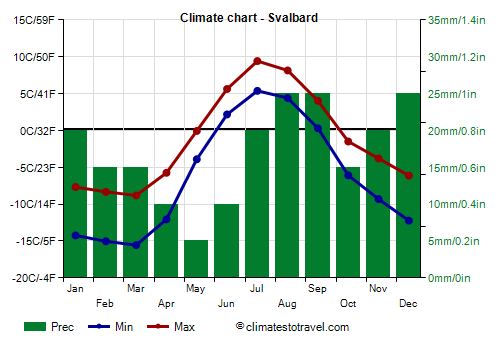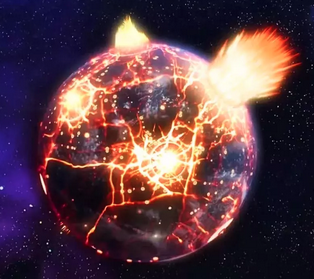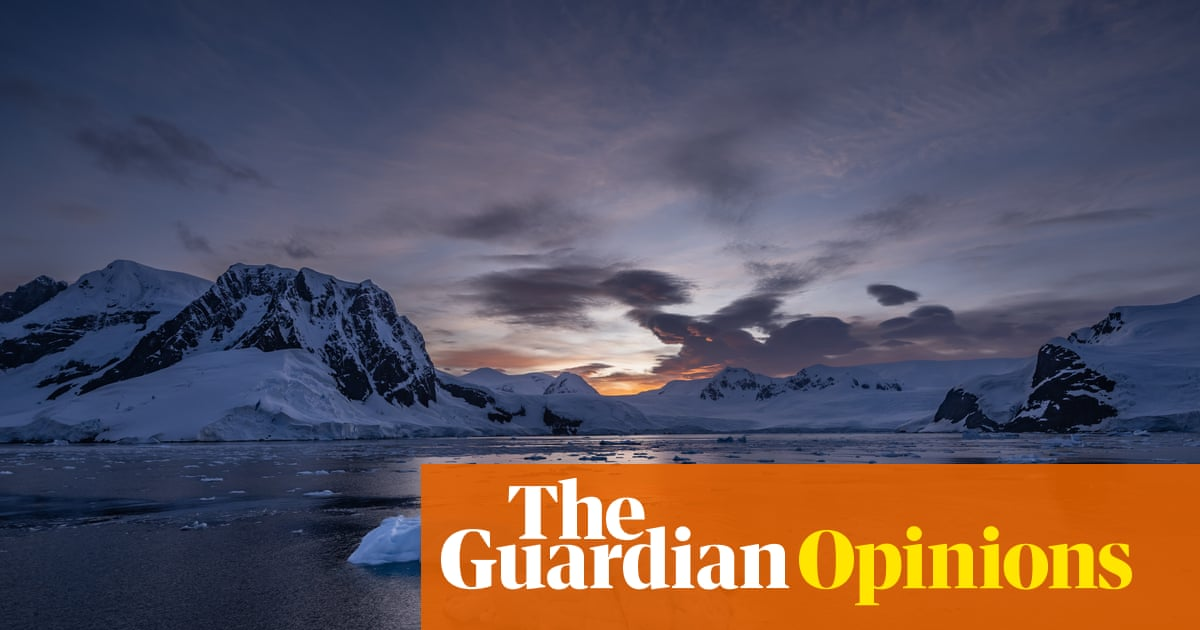- cross-posted to:
- news@kbin.social
- environment@beehaw.org
- cross-posted to:
- news@kbin.social
- environment@beehaw.org
(opinion)
More bad news… Every climate catastrophe indicator is far above what anyone even considered just a year ago. It appears that the rate of climate change is beginning to increase exponentially, further evidence that enough climate tipping points have been reached to render change unstoppable.
Negative emissions would basically need to exist on subsidisation. There’s no tangible product there that can be sold to any individual person. It’s not happening in the next couple decades, and after that who knows what the global politics will be. I wouldn’t rely on it, though.
Since 1971 the ocean is estimated to have absorbed heat equivalent to the energy of more than 25bn Hiroshima-scale atomic bombs.
That’s insane. I knew it would be a lot because water carries heat very well, and a million wouldn’t be worth a comment, but billions? I wonder how many hours of sunlight hitting the Earth that is.
Edit: An entire 4 months based on a quick visit to WolframAlpha.
A study this week by Net Zero Tracker found the bulk of “net zero” commitments from fossil fuel companies were meaningless as they either included no short-term emissions reduction plans, or did not fully cover scope 3 emissions (that is, the pollution released when a company’s products are used).
No way. /s
Their whole business is moving carbon from the ground to the atmosphere for energy (with a few percent set aside for chemicals). If anyone thought that included the product they haven’t actually thought much about it.
I’m fully prepared that we’re going to live on a different Earth. Here in Canada the indication is some of the forests the fires have wiped out are not coming back as forests but grasslands, for example. I wonder when we’ll start farming them.
I hope we manage to Noah’s ark some of the threatened species, or even modify them to survive better.
I hope we manage to Noah’s ark some of the threatened species, or even modify them to survive better.
Yeah, that may be unsustainable. Norway’s seed vault is already threatened by thawing permafrost…
[https://time.com/5177165/climate-change-threatens-norway-seed-vault/](from 2018)
Well, it’s a matter of funding. Like the article mentions they actually got it to flood-proof the vault.
We could fix every problem at present if we wanted to, it’s just a (very non-trivial) matter of if we will. Hopefully cute clownfish can sell some rich bozos on an indoor reef. Heat-resistant coral algae is another promising approach. On the other hand, random tropical insects are pretty fucked.
I don’t think that flood-proof is a thing, but their heart is in the right place.
And it’s true that with sufficient wherewithal, most problems could be fixed. The solutions are certainly non-trivial and will be unthinkably expensive.
I don’t think that flood-proof is a thing, but their heart is in the right place.
I mean, boats and submarines do it. Keeping seeds viable in the naturally cold arctic isn’t the hugest engineering problem really.
Imagine if we could react to climate change with the same urgency as Covid. I imagine we could replace all the old powerplants in a few years, and all the old cars in 10. The thing is, that’s just not going to happen.
Yes, boats and submarines flood. And the conditions at both polar regions are changing more dramatically than anywhere else. There are lakes bubbling methane from melted permafrost in Siberia and Alaska. Norway is already too warm to have glaciers.
I agree that It is completely possible to transition to zero emissions in just a few years. The process would be painful, disruptive, and cost $50 trillion. There’s a shot if it starts next week. It may be too late.
I don’t think there’s a scenario where even the arctic is too hot to survive in. Keep in mind it’s not in normal Norway, it’s on the island of Svalbard, which is closer to the North Pole than anything and IIRC has an average temperature of -15C pretty much year-round. Assuming the arctic continues warming at 4x the global average it won’t start reaching thawing temperature on the surface until 4 degrees warming.
Plus, the cold is nice but seeds can actually last a really long time even at room temperature. I’m reminded of the date tree seed they found and successfully planted after a couple of millennia in Israel.
I’m kind of a doomer but that specific one seems both doable and actually being done.
Temperatures up to 10C

The problem with “offsets” is that they come in two very different forms:
- Rebranded conservationism
- Rebranded terraforming
Conservationism (i.e.: promising not to cut down trees) does not actually affect the status quo, which is not helpful because the status quo is already unsustainable. It’s a promise, quite literally, to do nothing.
Terraforming (i.e.: carbon capture, planting trees) on the other hand represents an active investment in reversing prior damage. Of course, when you frame it this way people get very nihilistic because they realize how incredibly expensive it would be to have a perceivable impact on the planetary scale.
I think that the terms “net-zero” and “carbon offset” have been deeply poisoned by the incentives at play surrounding them and expect that the idea will quietly die out as a consequence. That’s a shame because micro-scale terraforming was how we got ourselves into this mess and it’s probably the only way back out.




